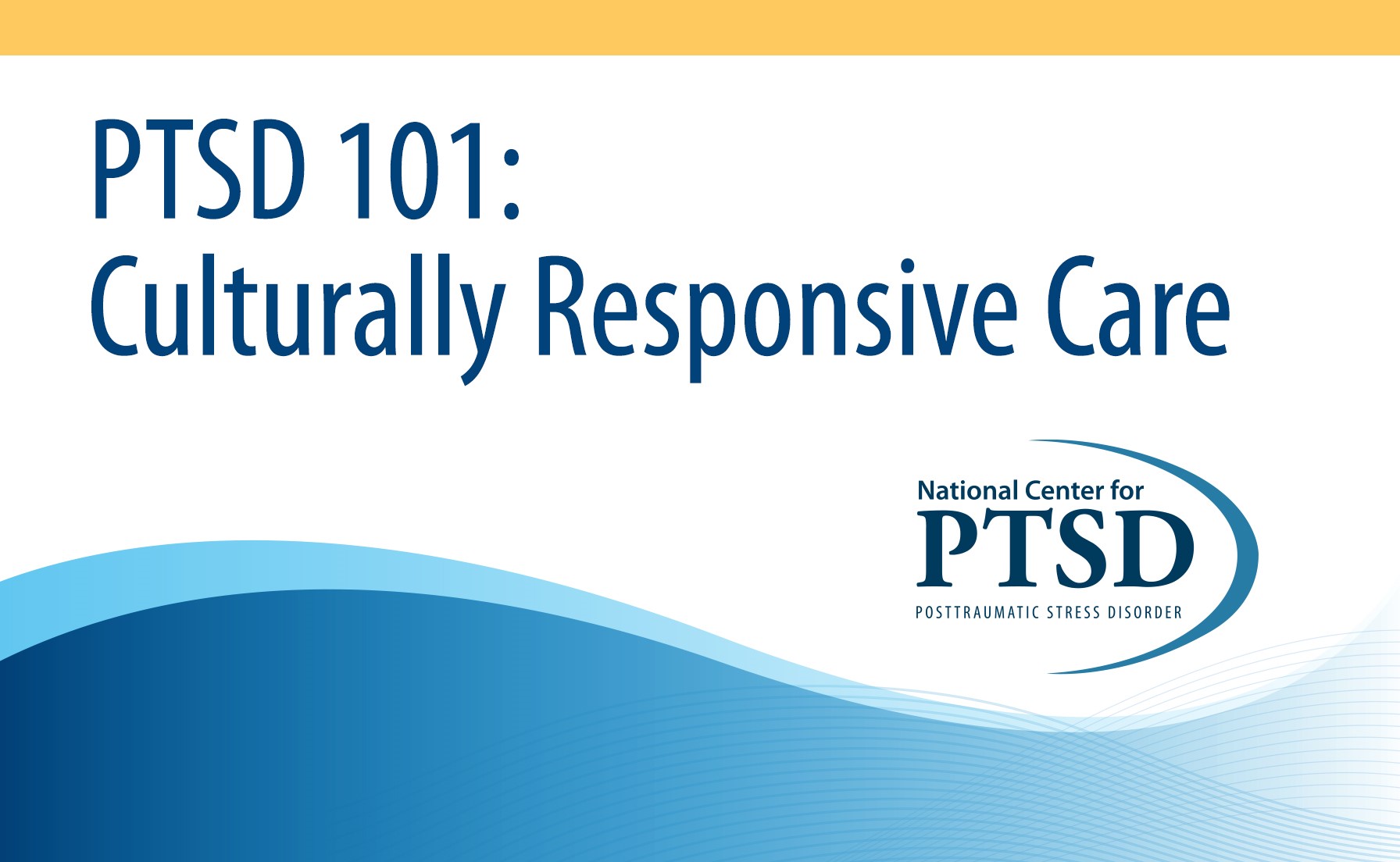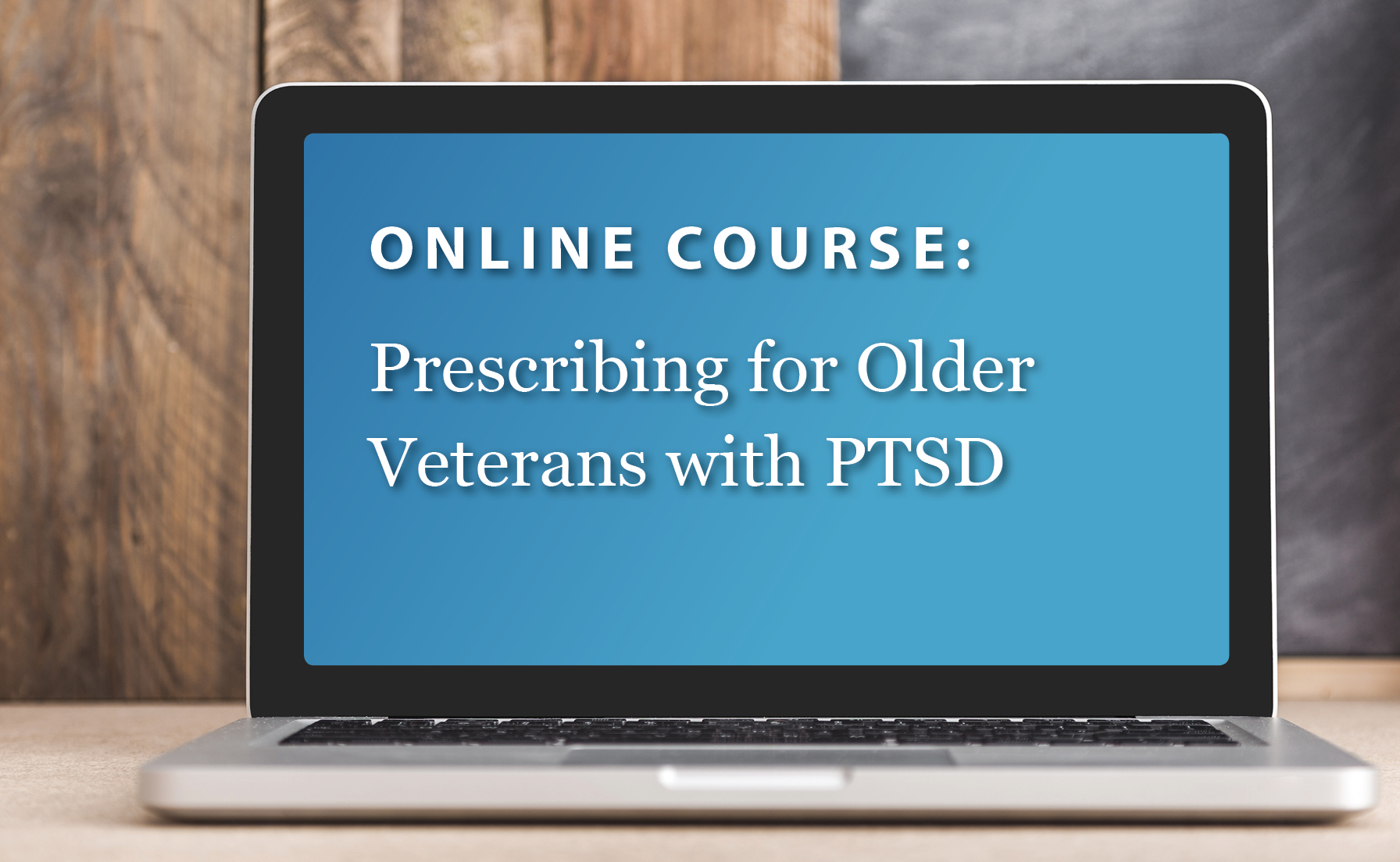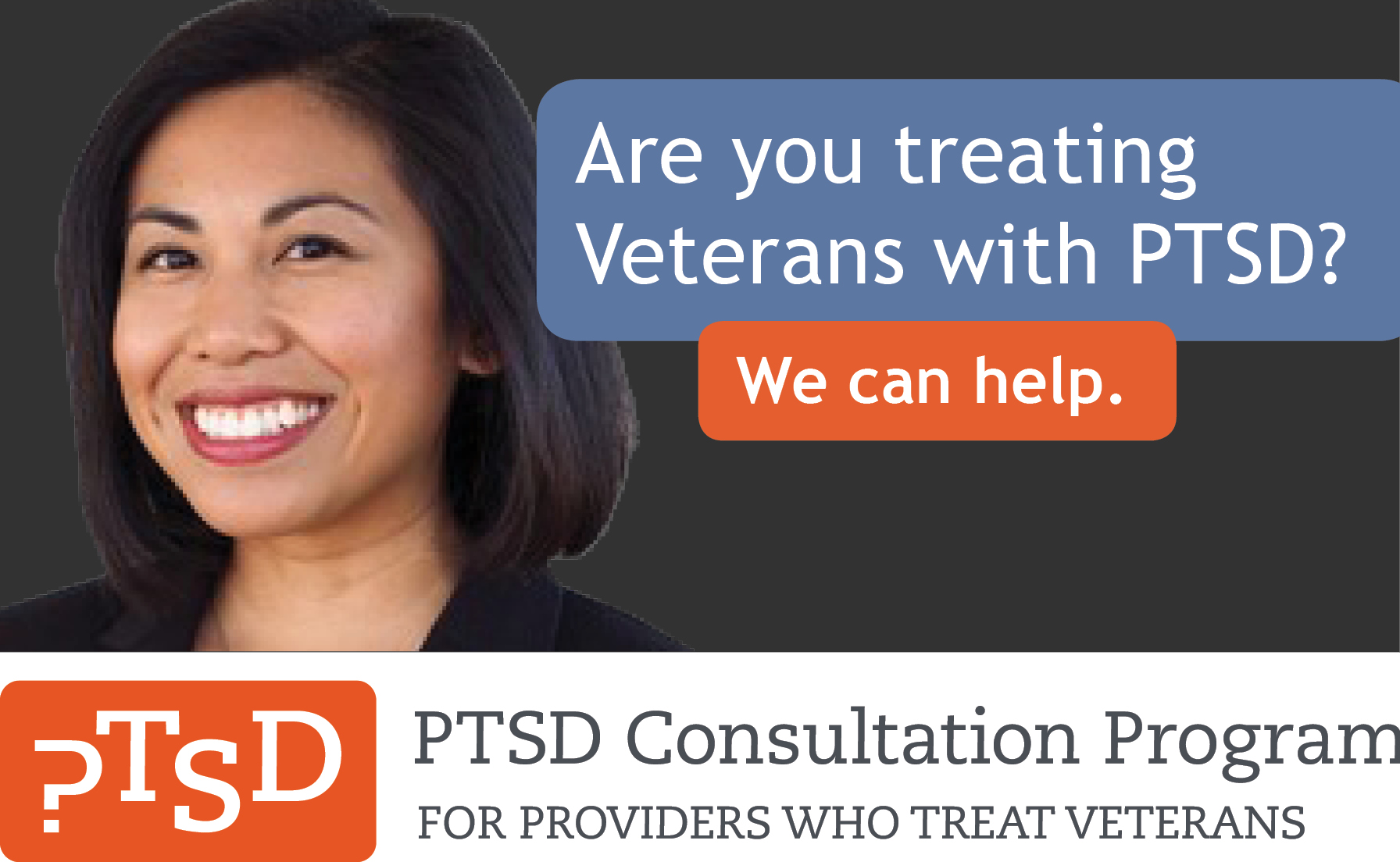Attention A T users. To access the menus on this page please perform the following steps.
1. Please switch auto forms mode to off.
2. Hit enter to expand a main menu option (Health, Benefits, etc).
3. To enter and activate the submenu links, hit the down arrow.
You will now be able to tab or arrow up or down through the submenu options to access/activate the submenu links.
Locator
Contact
Search
Specific Populations
Specific Populations
While there are fundamental principles of good trauma treatment that apply to all patients, an understanding of the experiences and needs of specific populations can improve care.
Military
- Provider Guide to Addressing Veterans' Reactions to Large-Scale Traumatic Events
Learn strategies to address Veteran needs following events such as war, terrorism, mass violence or disasters that occur in the U.S. or abroad. - Addressing Veterans' Reactions to Large-Scale Traumatic Events
Tips for VA Staff to create a positive and comfortable environment, facilitate referrals and provide resources to Veterans who have needs following events such as war, terrorism, mass violence or disasters. - Provider Guide to Addressing Veterans' Reactions to Current Events in Ukraine
Read tips to check in with and support Veterans who may be experiencing strong emotions related to the events in Ukraine. - Types of Trauma
Read more articles that describe common military traumas and Veteran-specific stressors with treatment considerations.
Women
- Research on Women, Trauma, and PTSD
Reviews the research on women's experiences of trauma, PTSD, and effective treatments, with a focus on relevant similarities and differences found between women and men.
People of Color
- Provider Guide to Addressing Patient Reactions to Race-Based Violence During PTSD Treatment
Discusses case formulation and treatment decision-making considerations for providers who face emerging patient needs related to race-based violence events during the course of PTSD therapy. - Posttraumatic Stress Disorder and Racial Trauma (PDF)
This edition of our PTSD Research Quarterly (February, 2021) provides a comprehensive review of the literature on the adverse impact, underlying mechanisms, assessment and treatment of racial trauma and PTSD. - Racial and Ethnic Disparities in PTSD (PDF)
This edition of our PTSD Research Quarterly (October, 2020) provides a guide to some of the key topics in racial and ethnic disparities in PTSD and PTSD treatment.
LGBTQ+ People
- Trauma, Discrimination and PTSD Among LGBTQ+ People
Describes the unique experiences of LGBTQ+ people who have experienced trauma, discrimination and PTSD. - Assessment and Treatment Considerations for Working With LGBTQ+ Clients With PTSD
Includes considerations for assessment, case conceptualization and treatment approaches for PTSD that are relevant to LGBTQ+ people.
Older Adults
- PTSD Assessment and Treatment in Older Adults
Discusses assessment strategies and treatment interventions for older adults based upon patient age and the broader context of aging processes. - Posttraumatic Stress Symptoms among Older Adults: A Review
Includes review of research on PTSD in older adults, including trauma exposure, epidemiology, reemergence of symptoms, and Late-Onset Stress Symptomatology (LOSS).
Clients at End of Life
- PTSD and End of Life: Clinical Considerations for PTSD in Palliative or Hospice Care
Learn about emerging guidelines to support care teams working with families and patients facing end of life (EOL) with pre-existing PTSD, which can complicate the dying process due to chronic symptoms or a flare of symptoms.
Families
- PTSD and the Family
Discusses connections between PTSD and the quality of relationships with loved ones, including children, and reviews treatment implications and relevant resources for families.
Children
- Trauma, PTSD, and Attachment in Infants and Young Children
Discusses epidemiology, diagnosis, and treatment of trauma-related problems in infants and young children, with a special focus on the role of attachment. - PTSD for Children 6 Years and Younger
Describes the DSM-5 subtype of PTSD in preschool children (ages 6 and younger) and reviews symptoms, diagnosis, and treatment considerations. - PTSD in Children and Adolescents
Provides an overview of PTSD in children and adolescents, including common causal events, prevalence, risk factors associated with PTSD and other effects of trauma, as well as treatment options.
Non-Combatants
- Mental Health Aspects of Prolonged Combat Stress in Civilians
Describes how civilians respond to prolonged stress with the intent of helping clinicians predict how U.S. civilians may be affected by the war in Afghanistan.
You May Also Be Interested In

PTSD 101: Culturally Responsive Care
Understand and develop the components of a culturally responsive case formulation.

PTSD 101: Prescribing for Older Veterans with PTSD
Learn best practices for pharmacological treatment for older Veterans with PTSD.
























